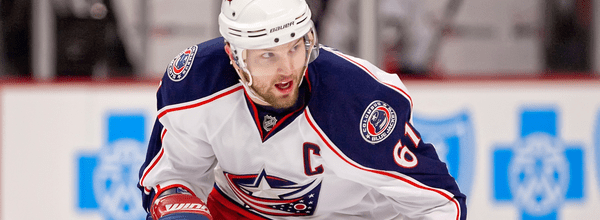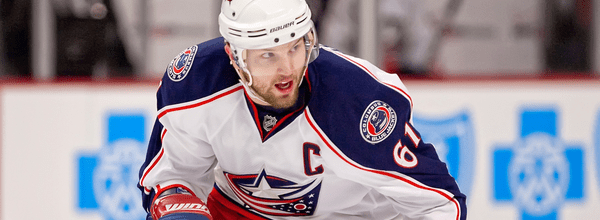A Deeper Look at Rick Nash’s ‘Bad’ Season


As of this writing, Rick Nash has 18 goals and 39 points through 57 games with a minus-22 rating. Those of you who drafted him this season thought he would easily eclipse 30 goals and 60 points. With the addition of Jeff Carter, you also probably thought he would also do so with a better plus/minus and better overall peripherals.
Unfortunately, none of those targets were hit, and they are unlikely to be achieved as the season winds down. In fact, he projects to score 26 goals and 57 points which isn’t as bad when you put it in perspective. However, it is bad for a fourth round pick in most drafts.
What irks me is: Why is Nash having such a bad season?
The Blue Jackets have only made the playoffs once in his nine seasons and never won a playoff game. For most of his career Nash has elevated his game in spite of his surroundings, becoming a superstar in an organization devoid of them.
One reason to explain his slump is luck, and right now, Nash simply does not have it. He is shooting at an 8.2 percent clip, which is well below his 12.7 career average or 12.9 three-year average. Using a statistic known as PDO — the sum of “On-Ice Shooting Percentage” and “On-Ice Save Percentage” while a player was on the ice — we can determine that his 974 should improve as it progresses to the mean of 1000. In other words, he’s unlucky but his luck should turn with time.
Perhaps that luck has already started to turn with his recent five-game point streak in which he had a goal and six points. In fact, it has been mostly bad luck, and not diminished skills, or his poor team holding Nash back. The team as a whole scores less than 6 percent of the time which is simply snake-bitten. Combine those factors with a losing mentality and Steve Mason’s penchant for allowing early goals and yes, the Blue Jackets are weighing Nash down; but only in the sense that they aren’t supporting him whatsoever.
Should Nash move to a better team — which has been rumored literally everywhere — he would improve in all facets. Regardless, his statistics are of his own doing, meaning he probably would still top out at around 30 goals and 70 points, but with those better peripherals.
As an example, take a look at the average ranks of Patrick Sharp and Jarome Iginla. Both players have 22 goals and 46 points on the season, respectively, but Sharp has a lot more value to his fantasy hockey owners due to a better plus/minus. That’s pretty much all he does better as he registered one less power play point while having six more shots and four more PIM. Yet, he’s a first tier forward and Iginla has (barely and recently) fallen out of the elite.
Essentially, Nash moving to a new team — assuming that this new destination is a contender — would move him up a level. And while he likely won’t finish with more than 70 points this season (if he goes on a huge run), those peripherals would improve to the point that he’s a perennial 35-goal, 70-point player with more power play points and a much better plus/minus.
Looking back at last season, only 24 players broke 70 points. Of those skaters, only 14 scored over 30. In short, Nash moving to a contender that could help pad his stats would be a boon to his fantasy hockey value. It would also make him an elite player.
Whether he can find chemistry on that team is clearly another story but he has the potential to become a very special fantasy hockey player. Right now might be the time to try and get Rick Nash, fantasy hockey owners.